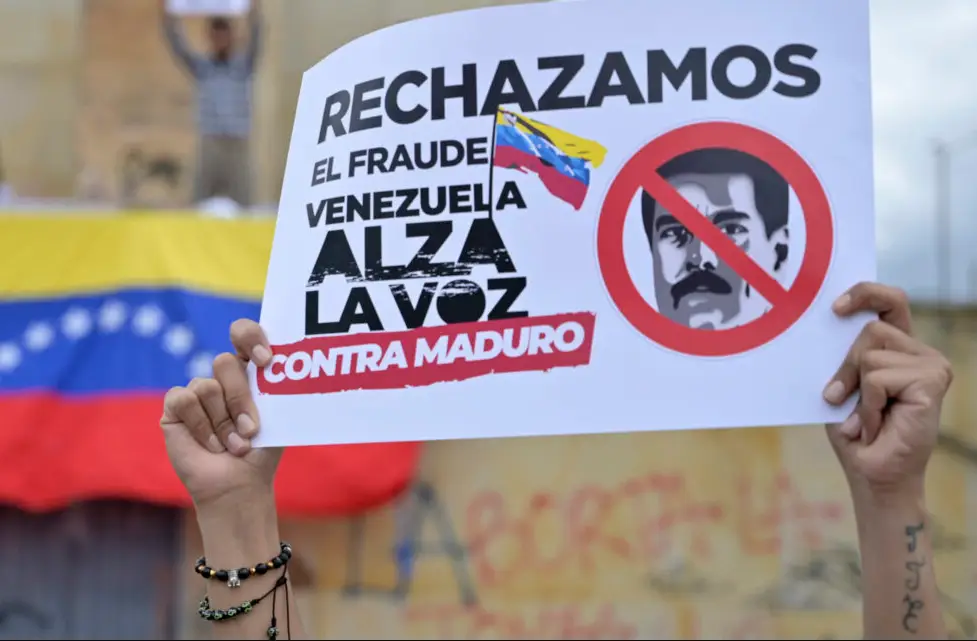The parliamentary and regional elections held on May 25 in Venezuela were marked by a critical combination of structural irregularities, institutional opacity, and extremely high voter abstention—an expression of the deepening autocratic drift the country is undergoing.
Since the National Electoral Council (CNE) orchestrated a massive electoral fraud on July 28, 2024, to overturn the overwhelming victory of opposition candidate Edmundo González Urrutia, the electoral body has lost what little credibility it had left.
Without presenting disaggregated results by polling station, without a functioning website, and without conducting post-election audits following the 2024 election, the CNE hastily awarded the presidency to Nicolás Maduro. This came despite vote tallies from the voting machines, recovered by opposition witnesses, showing a clear win for González.
It was in this context that the 2025 parliamentary and regional elections were convened. Originally scheduled for April, they were ultimately held on May 25. From the moment of their announcement, the process revealed serious flaws. No formal resolution calling for elections was published in the Official Gazette, no public electoral calendar was presented, and voter registration and updates were not allowed. Technical safeguards were conspicuously absent: system audits lacked impartial oversight, and the CNE’s digital infrastructure, including its website, remained inactive, blocking public access to essential information. With no independent oversight mechanisms or open monitoring tools, the process lacked even the most basic transparency standards.
Opposition leader María Corina Machado, from hiding, called on opponents to abstain from participating in such a process. Meanwhile, representatives of the minority opposition—such as Henrique Capriles, Manuel Rosales, and Juan Requesens—advocated for electoral participation.
If there was any doubt about who leads the opposition sectors, it was resolved on May 25: Venezuelan citizens did not take part in the elections. Images of empty polling stations circulated widely across media and social networks, reflecting a level of voter rejection that the government could not conceal.
Despite this, the CNE claimed that 5.5 million people voted, equivalent to 25% of the electoral roll (21,485,669 citizens), while simultaneously asserting that this figure represented 42% of eligible voters—without offering any explanation or verifiable data to support this claim. The official results are not only unverifiable—due to the lack of access to data and independent audits—but also internally inconsistent, further deepening public distrust.
A day after the election, Jorge Rodríguez—President of Venezuela’s National Assembly and Maduro’s electoral strategist (formerly a CNE board member and later Maduro’s campaign chief)—announced detailed results that the electoral body itself had not yet published. For example, he stated that Henrique Capriles and other candidates outside the ruling Patriotic Pole had won seats in the National Assembly that will take office in 2026.
The opacity surrounding the results is so severe that there is no guarantee these opposition figures were genuinely elected. Andrés Caleca, a former opposition candidate in the 2023 primaries and former president of the CNE, stated that if the announced results are accepted as true and if the legally mandated seat distribution method (D’Hondt) is correctly applied, this group of opposition participants was artificially granted more seats than they were entitled to.
Thus, it appears Venezuela is entering a new phase in which election results are not only inscrutable and inconsistent, but ultimately not even decisive in the assignment of public offices.
Ten days after the parliamentary and regional elections—and without publishing disaggregated results by polling station, even though the seats have already been assigned—the CNE called for municipal elections to be held on July 27.
Since the massive fraud of July 28, 2024, it has become clear that Nicolás Maduro’s government has abandoned the electoral path. Although past elections had already been manipulated (Bolívar state and the 2017 Popular Consultation), or their results disregarded (2015 legislative elections), never before had fraud reached the scale seen last year.
In recent years, despite highly adverse conditions, the Venezuelan opposition engaged in a negotiation process with the government through international mediation, held a primary election to legitimize its leadership—where María Corina Machado was overwhelmingly chosen—and, despite her illegal disqualification from the 2024 presidential race, continued along the electoral route and designated Edmundo González as her substitute candidate. They crafted a mobilizing message, channeled public discontent into participation, and even built a vote-monitoring structure (“comanditos”) that enabled them to obtain nearly 80% of the tally sheets issued by the voting machines—clearly demonstrating an opposition victory. Despite these efforts in an extremely unequal setting, Nicolás Maduro’s government chose to disregard the results, repress dissent, and violate human rights.
When voting no longer has consequences, there is no incentive to participate. Venezuelans chose to abstain from the regional and parliamentary elections, and they will likely do the same for the municipal elections on July 27—because the power of the vote to effect change has been nullified.
*Machine translation proofread by Janaína da Silva.













